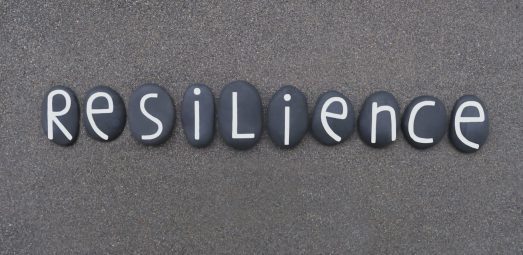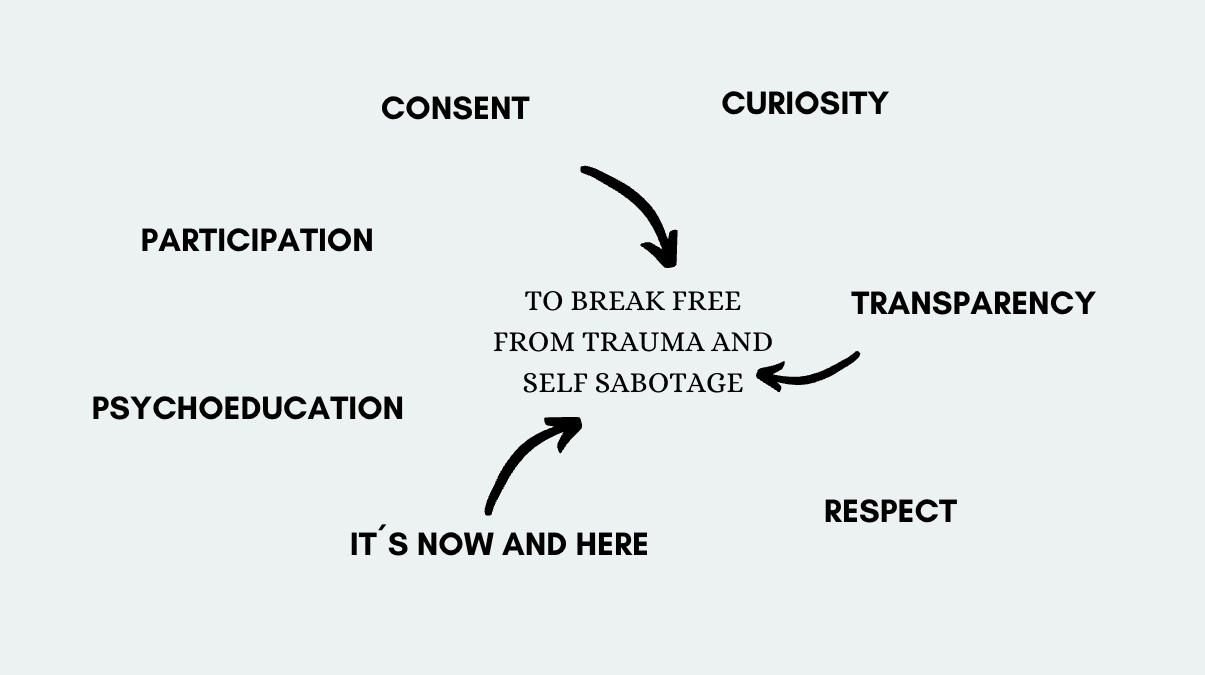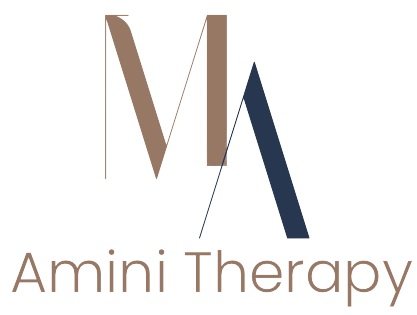How I Work
What is NARM® Therapy?
The NARM approach integrates both top-down and bottom-up principles, meaning that it takes into account both the physiology and psychology of the client. NARM Therapy is a phenomenological model that supports reconnection between heart and mind, eliminating or reducing incongruences. This cultivates ease, vitality, decreases dysregulation and the need to disconnect from others.


Who benefits from NARM Therapy?
What happens in NARM® Therapy?
NARM is NOT a goal-orinted model focused on fixing symptoms.
NARM is an inquiry-based model that supports connection to one self. The way it is done is to help clients to re-own the disowned, rejected and split-off parts of themselves that they don´t want to own. These disowned parts are often reffered to "Child Consiousness".
Healing occurs in recruiting the executive & resiliency brain systems to integrate with and balance the regulatory brain systems. This integrated brain process can be referred to as our “Embodied Adult Consciousness".
Moreover, in NARM® therapy, you can expect consent, curiosity, participation, psychoeducation, acceptance, structure, and transparency. All these principles combined will help to create a solid therapeutic foundation giving you the possibility of deepening relationship with yourself.

What can you expect from me?
I will always start the therapy with a clarifying question about “what you want for yourself”? From there, exploration begins. Exploration of things in the way and things in support of what you want.
In my practice, I use the following principles to build a safe environment for my client as well as focus on the progress.



My Organizing Principles
7 Pillars Of My Practice
You are in control, and we will not explore anything before you are ready. I may gently encourage you outside your comfort zone, but I will always respect your decision to proceed or not.
In my experience, curiosity is key to unlocking personal growth. I will ask questions and explore with you, while always respecting your boundaries.
Therapy is a process that requires both parties to be fully engaged. I will encourage you to be an active participant in your own healing. While I am there to support you, ultimately its´s you who has to take steps forward.
Every session will be focused on the present moment. While stories from your past may come up, it is how those stories are impacting you now that matters the most. We will be working with the past through the vehicle of the here-and-now to help you resolve them.
I will share psychological and/or neuroscientific information with you when it is relevant. This can help you gain a better understanding of your experiences and feel less alone.
I understand and respect that you developed certain coping mechanisms for a good reason. Even though they may not be helpful anymore, they have served you in the past. Understanding why you developed these coping strategies and how they served can help you develop more effective coping strategies for the future.
I will always be transparent with you about my process, and honest with you. If you want to know about my life, I am an open book. If you ask me for honest answer, direct feedback, I will provide it.
Testimonials
My journey with Mia has been an extraordinary and transformative experience. She introduced me to NARM, which felt like discovering a map to the inner workings of my psyche. The deeper we explored, the clearer my understanding became about the connection between my past traumas and present behaviors. With Mia's patient guidance, I started unraveling the layers of self-sabotage that had kept me stuck for years. But her therapy did more than just help me regulate my emotions; it connected me to my authentic self, something I'd lost sight of in the chaos of daily life. This rediscovered connection brought about profound changes, not just within me, but in my relationships as well. And the most beautiful part is, through this journey, I discovered a purpose that truly aligns with who I am at my core.
I think you can feel that you are entering a safe place where you are free to be who you are. Mia is good to talk to and to get you to realize what thoughts and feelings happen in the body and in the mind when responding to certain situations. Thank you so much for a good cooperation.
After years of depression, feeling empty, and being depressed, I finally got myself together to start therapy. I had never opened up to anyone before. Already after my first session with Mia, she showed an amazing kind of security and empathy that resulted in me being able to freely express my feelings and get a completely different view of my problems such as, has helped me a lot in my development with the fight against depression. Mia has great empathy and care, together with her broad professionalism, it creates a sense of security that helps to dig deep into your deep self and helps to solve your problems that you never thought could be solved.
Working with Mia has been life-altering, to say the least. At first, I was unsure of what to expect, but with her guidance, I started uncovering layers of my psyche I hadn't even known existed. The more we delved into my past traumas, the clearer the link became between them and my current behavior. With this newfound understanding, I was able to break the cycle of self-sabotage that had kept me stuck for years. But Mia's therapy didn't just stop at managing my emotions; it connected me to my authentic self. This connection created a ripple effect, enhancing my relationships and giving me a sense of purpose I'd never felt before. If you're seeking therapy, look no further. Mia's approach could well be the compass you need to navigate your inner world.
Throughout my therapeutic sessions with Mia, I have always felt welcome and listened to. Mia has demonstrated a high degree of professionalism, courtesy and consideration. At each session, the therapeutic atmosphere has been calm, safeguarding and immersive. This has contributed to the fact that I felt more secure each time and each session has been unfolded with respect and openness by the therapist. Mia always seeks to meet one with the greatest form of humility, and she listen with interest each issue and problem from my side which I bring to the session.
I have repeatedly approached Mia when I needed help to cope with an issue or address the personal problems that both myself and surely many other people struggle with. It has been my experience that I have been understood, listened to and that I have been met with empathy in my particular situation. Therefore, I can only recommend Mia Amini to anyone looking for both skilled and professional treatment
Mia's therapy is a beacon of light for those feeling lost in the turmoil of their emotions. With her guidance in the sessions, I began to see my patterns of self-sabotage for what they were - manifestations of past traumas. As we worked through these issues, I started reconnecting with my authentic self, and it was as if a weight had been lifted. I felt lighter, happier, more connected to myself and others. My relationships slowly and gradually is improving, I stopped doubting myself and my own abilities and I even found a newfound sense of purpose. It was like Mia handed me a roadmap to my own life even though it existed somewhere deep down within me but I was not able to access it.
"The therapy sessions are held in a trustworthy and comfortable room and space. I feel at home and I feel heard - it's a private and safe environment where there is room for all feelings. There's nothing wrong."
"Mia has taught me to accept my feelings and accept the fact that I can not control everything. She has given me tools to move on with my frustrations, which made challenging situations easier and more manageable. She never puts the sentences into my mouth, which opens up my own thoughts and reflections. She is aware that there are different people she works with and thus she introduces her therapy to suit that particular individual. She comes sometimes with good examples from her my own life, which means that I do not feel alone in the world with my struggles and at the same time she shows a sincere interest in helping me resolve my inner conflict. The therapy has also been built on a good chemistry, safety and security I felt during the course of sessions. This has meant that I was more open to share my feelings of vulnerability with her. If you have the courage to dig deeper into yourself - you have come to the right place. Mia will accompany you and it is good to have her with you. I would warmly recommend Mia. "
" My sessions with M.A. have been a space where I could breath easily after a busy day to day life, where there was space and tranquility to reflect on my true feelings and needs. You need a space like this otherwise else it is hard to reach. Mia is incredibly present, good at asking the right questions and "reaching all the way around" about the subject you are talking about. I have been incredibly pleased with my sessions with her and will no doubt recommend her to others.
It was important for me to be not met with prejudices and judgement. It is nice that Mia do not get prejudiced and that Mia has an understanding and empathy that you come from a home where things work a little differently from what is called "normal". What has been important to me is that she first listened to me and tried to understand me. That way, it felt safe and nice to be at therapy with Mia.
Thanks for the cooperation and because you got me back on my feet after my father's death. It has been a tough process to mourn and go through grief but through consultation with you, I was able to reflect, think differently and realize that my father will always be part of me. Because of the help and insight I received through our work, I have made some changes in my life. I feel, I have more energy and is fully focused on what is important here in life for me. I would recommend you to others who need to process grief and loss in a room for a free space to talk openly about everything between heaven and earth.
"Mia is a very trust-building and professional therapist, which has resulted in me experiencing the therapy sessions as being very effective. It helped immensely to be able to talk to an objective person about my challenges, as the conversations with Mia set a lot of thoughts in motion. I learned how to deal with the problems I have struggled with on my own. So Mia has helped me to be able to help myself. My course with Mia has therefore been a real eye-opener, and I highly recommend her to anyone who is going through hard times and need help."

